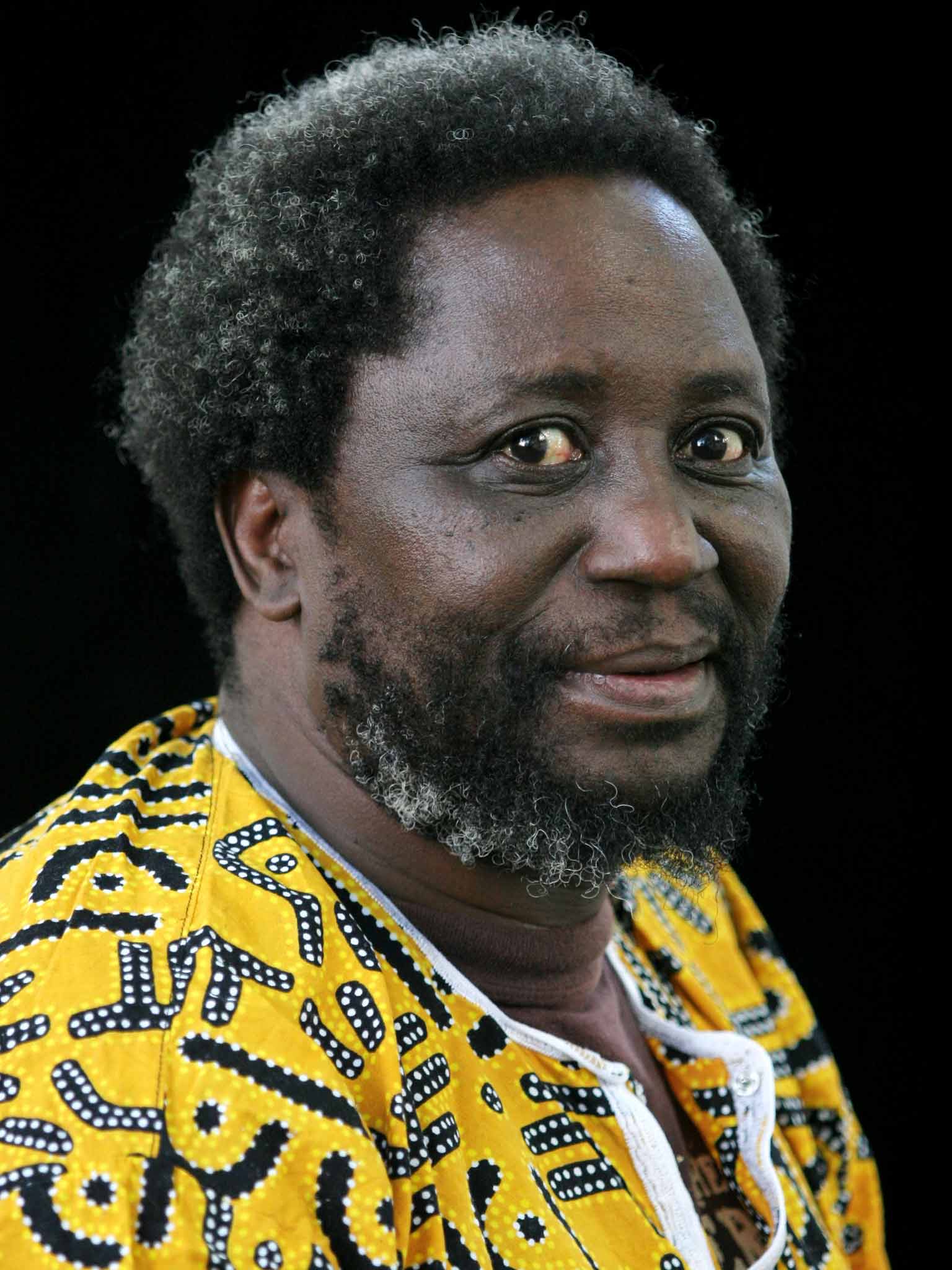Chenjerai Hove: Novelist forced into exile from his native Zimbabwe who sought in his work to give a voice to the voiceless of Africa
From a compassionate literary observer, Hove developed into a cultural politician

Chenjerai Hove, who has died from liver failure in Oslo, was a poet and novelist of principle who during the course of a lonely exile in the US, France and finally Norway was a voice for the voiceless.
At literary seminars after Zimbabwe's independence in 1980, Hove told large audiences that writers of his generation and background had heavy jobs before them – the burden of persuading a largely indifferent world to listen to Africa's cries of helplessness. "As writers," he said, "we have as well to turn around and be publicists for the sake of the survival of our people." It was his literary mantra and lifelong guiding principle.
"Chenjerai was a national treasure," said Wilf Mbanga, editor of the UK-based The Zimbabwean. "It is such a tragedy that one of Zimbabwe's best known writers was hounded out of his country and forced to live – and die – in exile. He was never afraid to speak the truth, no matter however painful that might be."
Hove wrote regularly for that paper. Like Voltaire, Hove believed that the best way to get rid of dictators was to laugh at them. In one column, Hove asked his readers to remember the stories they'd heard as children – especially the story about the proud monkey who climbed to the top of the tallest tree seeking applause from below.
When he got there, all the animals on the ground below roared with laughter. They cared nothing about his prowess as a climber but were delighted to get a worm's-eye view of the size of this self-important mamma's big fat red bottom.
"And so it is with power of any kind, political or otherwise," Hove wrote." The higher one ascends the tree of power, the more the public have a chance to observe and scrutinise one's political and economic bottom."
Chenjerai Hove was born in 1954, the son of peasant farmers. He converted from his parents' religion, Lutheranism, to Catholicism at the Marist Brothers-run Kutama College, where Robert Mugabe and so many men who entered the post-independence Zimbabwean cabinet were taught as youngsters. In 1977 Hove graduated from a teachers' training college. He worked as teacher until 1981 then worked for a publishing house, studying in his spare time for degrees in Language and Literature at the University of Zimbabwe.
From a compassionate literary observer, Hove developed into a cultural politician. Between 1984-1989 he was Chairman of the Zimbabwe Writers' Union (ZWU) and in 1989 he won the prestigious Noma Award for his novel Bones, in which he told the story of Marita, the poor, illiterate farm labourer who sets out for the city to search for her son who left with the freedom fighters and never returned.
Marita was one of the hundreds of thousands of lost and lonely women who walked the Zimbabwean earth after independence, often no better off (sometimes a lot worse) than they were in colonial times. Bones received glowing reviews and was translated into several languages. It was followed by two other important novels – Shadows (1991) and Ancestors (1996).
In her book Teachers, Preachers, Non-Believers – A Social History of Zimbabwean Literature (Baobab Books, Harare 1992) Flora Veit-Wild writes, "Hove seems to have met certain expectations that critics and international readers have of the modern African tale. Bones affirms in a lucid and inspiring way a certain image of a reformed but still intact 'Africanness'... Hove's attempt to recreate the African image seems, at best, romantic and naïve, and at worst, dangerously misleading."
Some say it was Hove's embrace of traditional African values that so appealed to liberal book buyers in London and elsewhere, but one of his contemporaries, the wild man of Zimbabwean literature, Dambudzo Marachera, dismissed talk about a noble African past as "a new kind of fascism based on the 'traditional' African image."
Despite such criticisms, Hove remains the first Zimbabwean novelist of international stature to place voiceless women centre stage. His concern for the little person led to his alienation from Mugabe and the ruling party, Zanu (PF). His house in Harare was broken into by secret police. His manuscripts were taken away. His computers were wrecked. His family was threatened. Hove's remaining friends (how quickly they leave when the police arrive) told him he would be killed unless he left the country.
He fled in 2001 with the help of the International Parliament of Writers, leaving behind his wife and children. He was found a temporary placement in France and later moved to Stavanger in Norway, where he was a guest writer through the International Cities of Refuge Network, an organisation that aids endangered and exiled writers. Hove was honoured in Britain, Germany and Scandinavia, and if the authorities allow his body to be returned home he will receive the applause of the men, women and children he championed throughout his too short life – Zimbabwe's voiceless millions.
Chenjerai Hove, writer: born Zvishavane, Rhodesia 9 February 1954; married Tekla (five children); died Oslo 12 July 2015.
Subscribe to Independent Premium to bookmark this article
Want to bookmark your favourite articles and stories to read or reference later? Start your Independent Premium subscription today.

Join our commenting forum
Join thought-provoking conversations, follow other Independent readers and see their replies